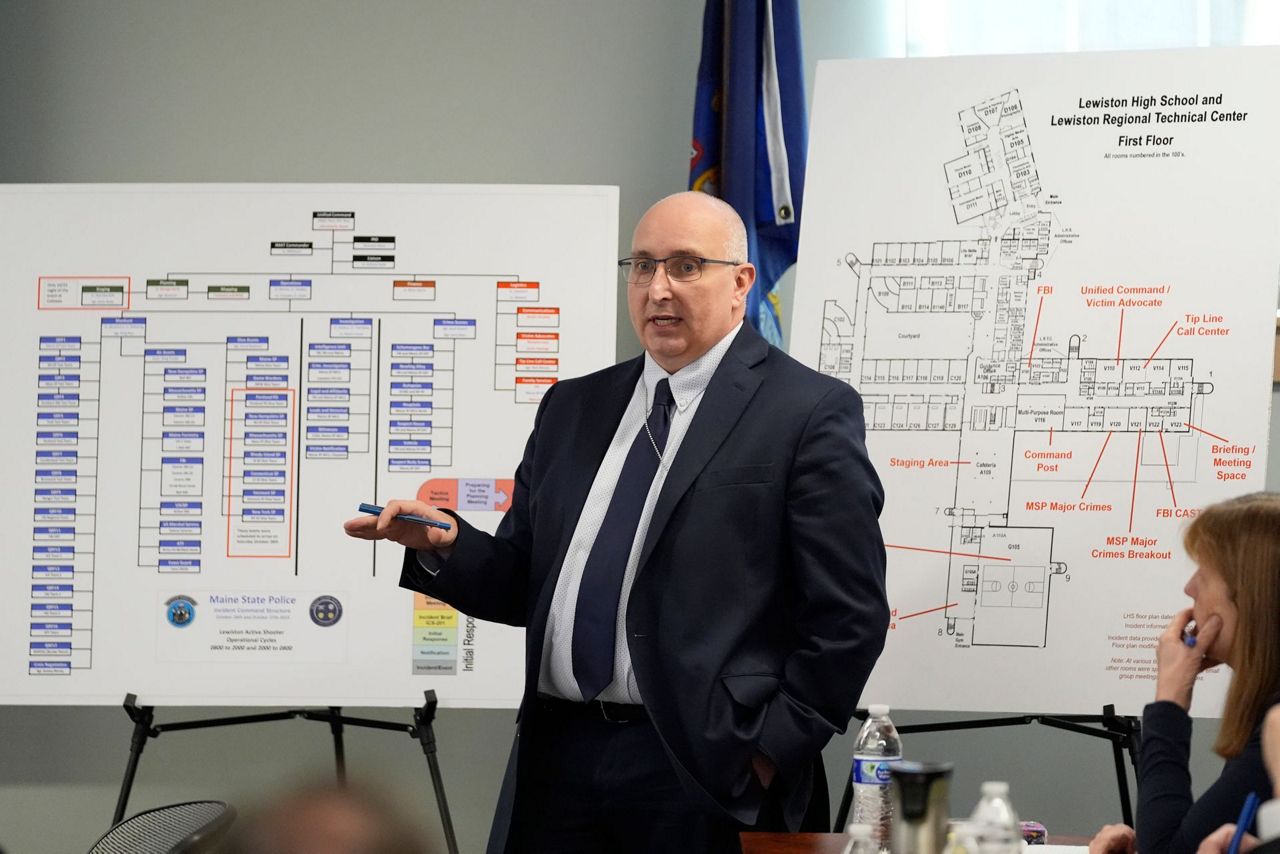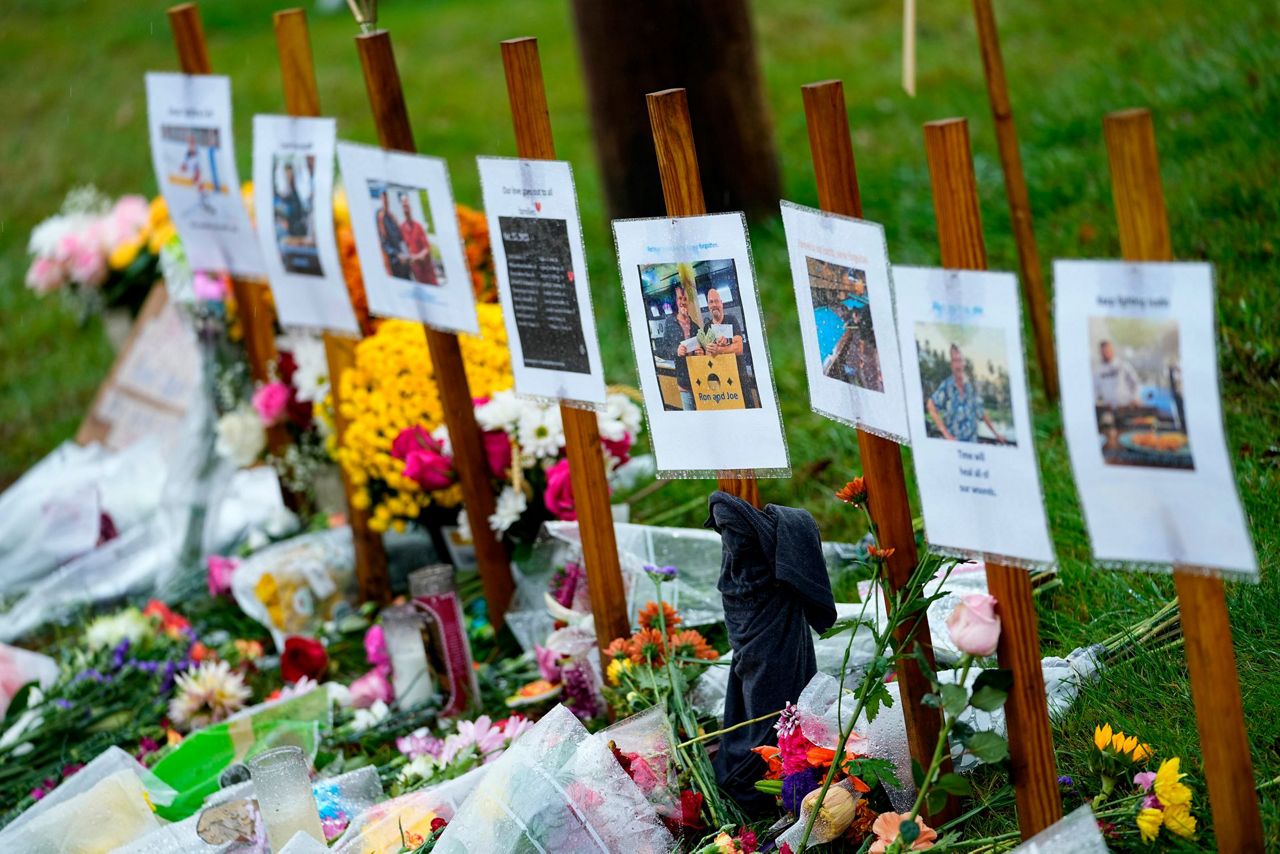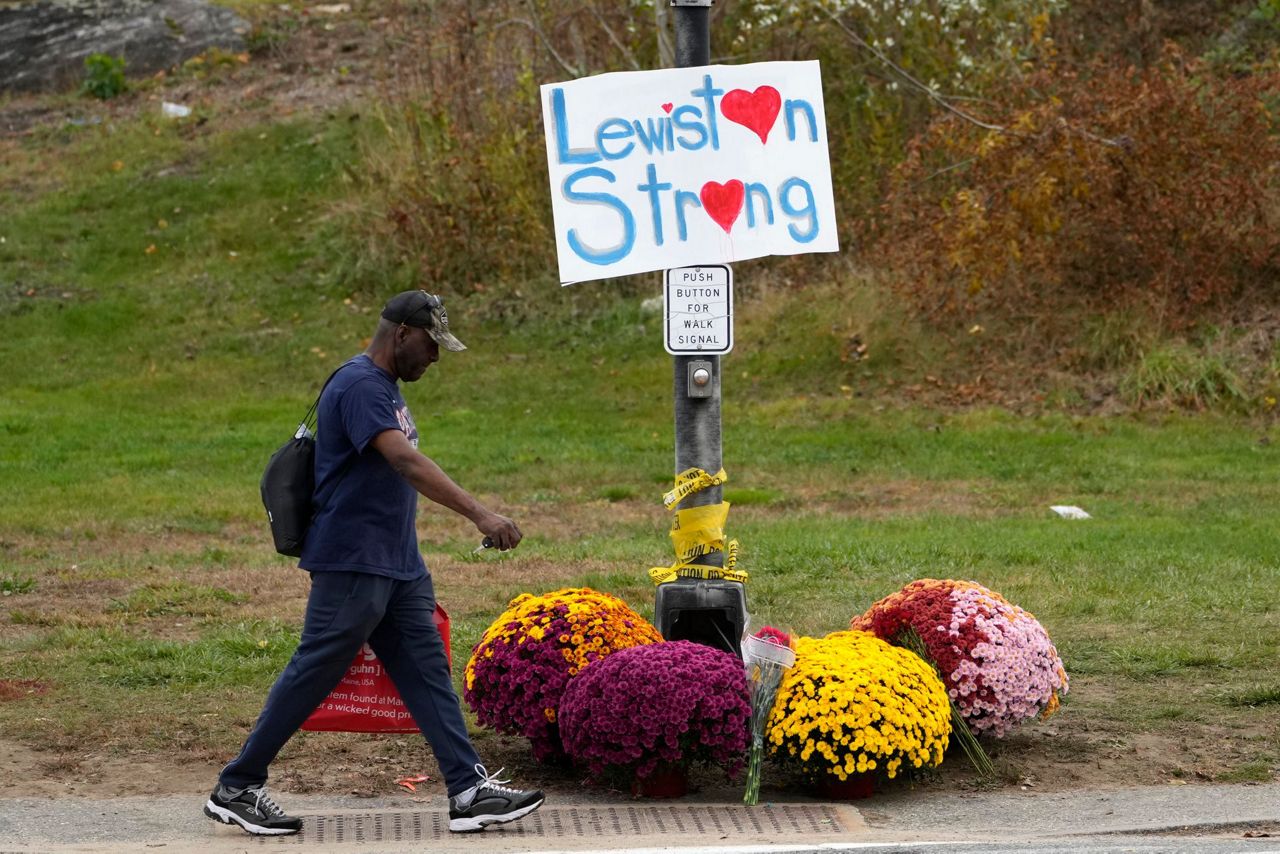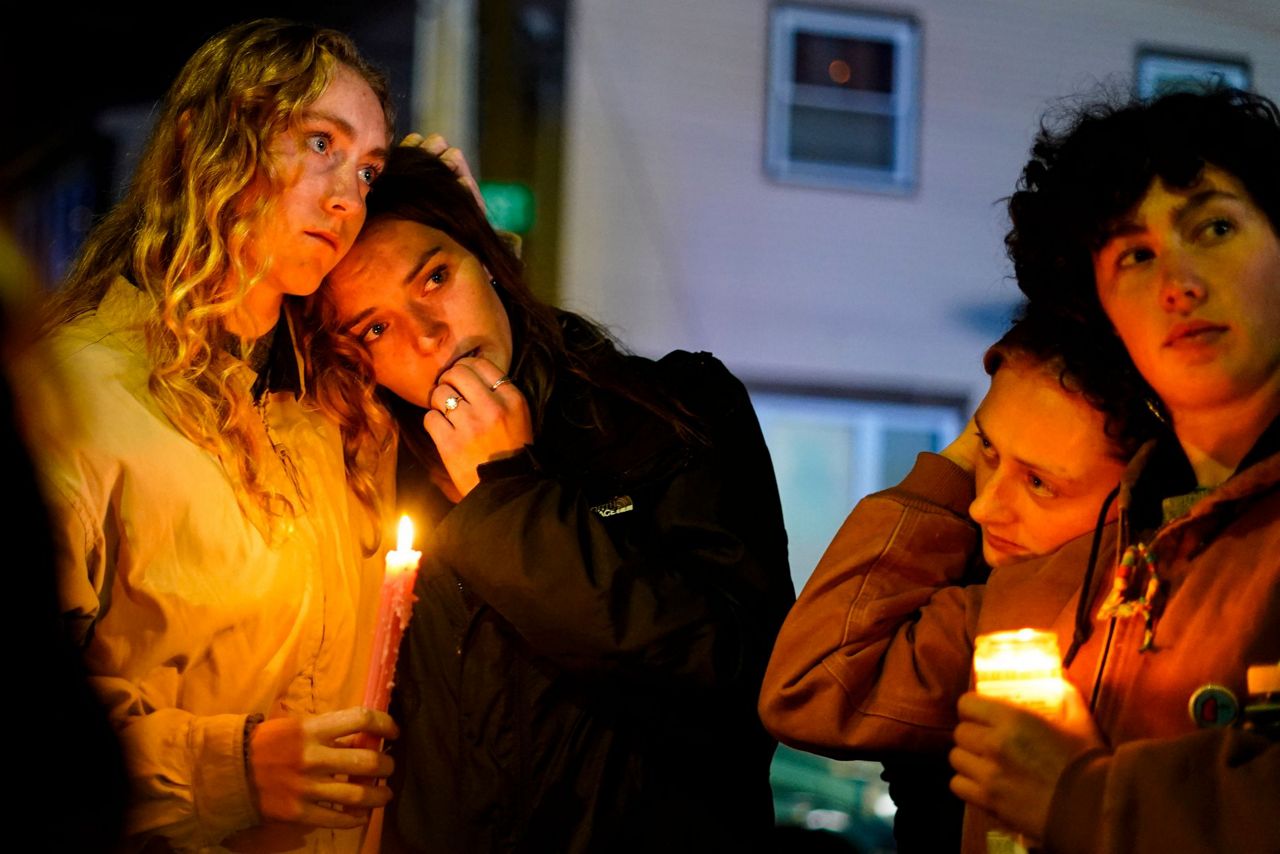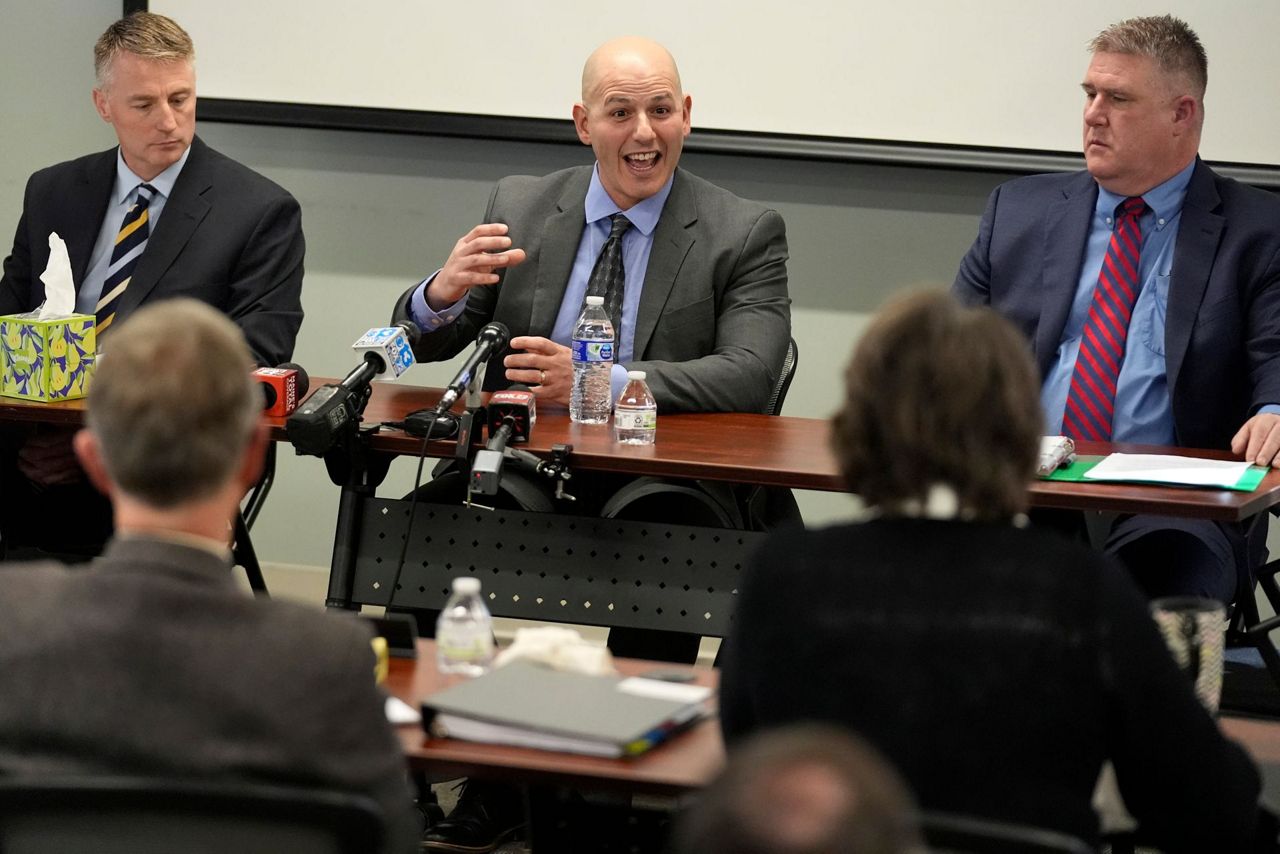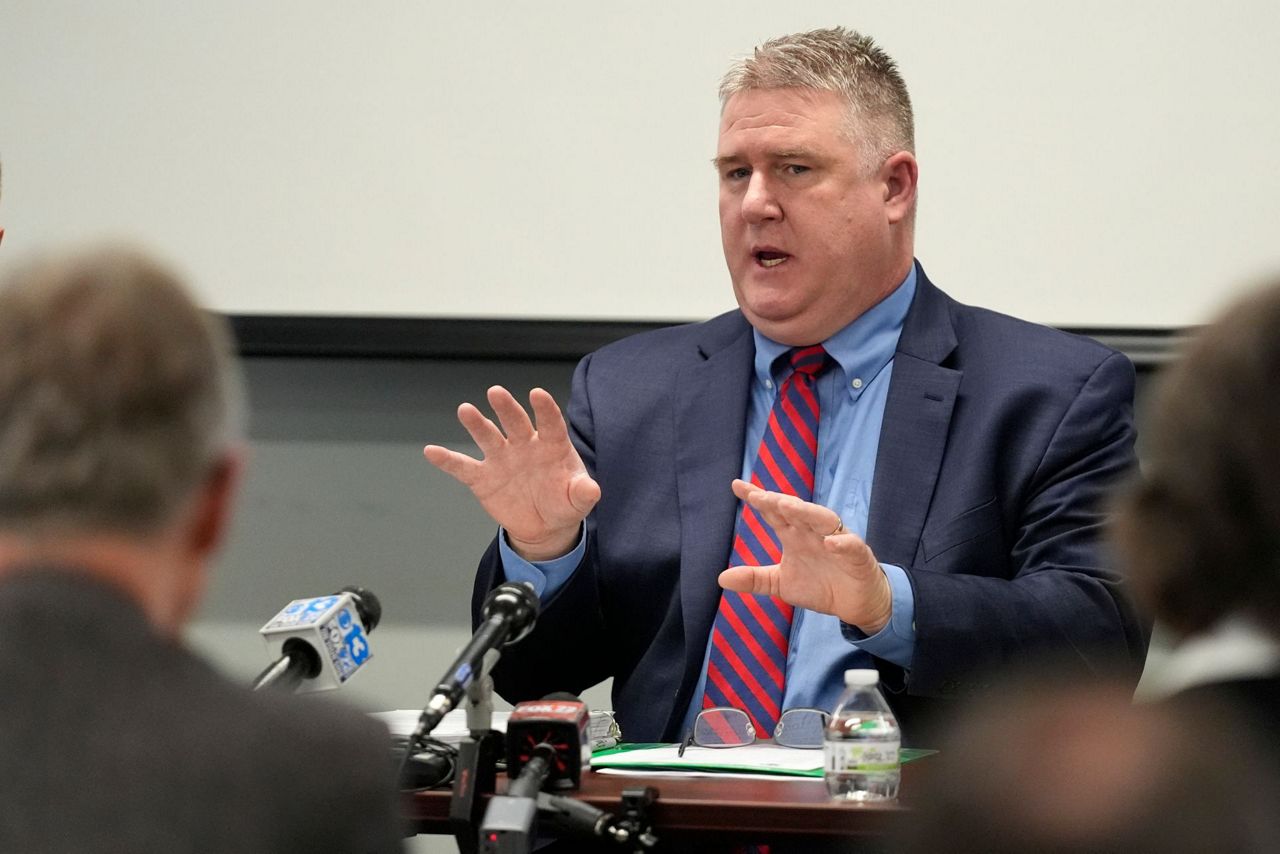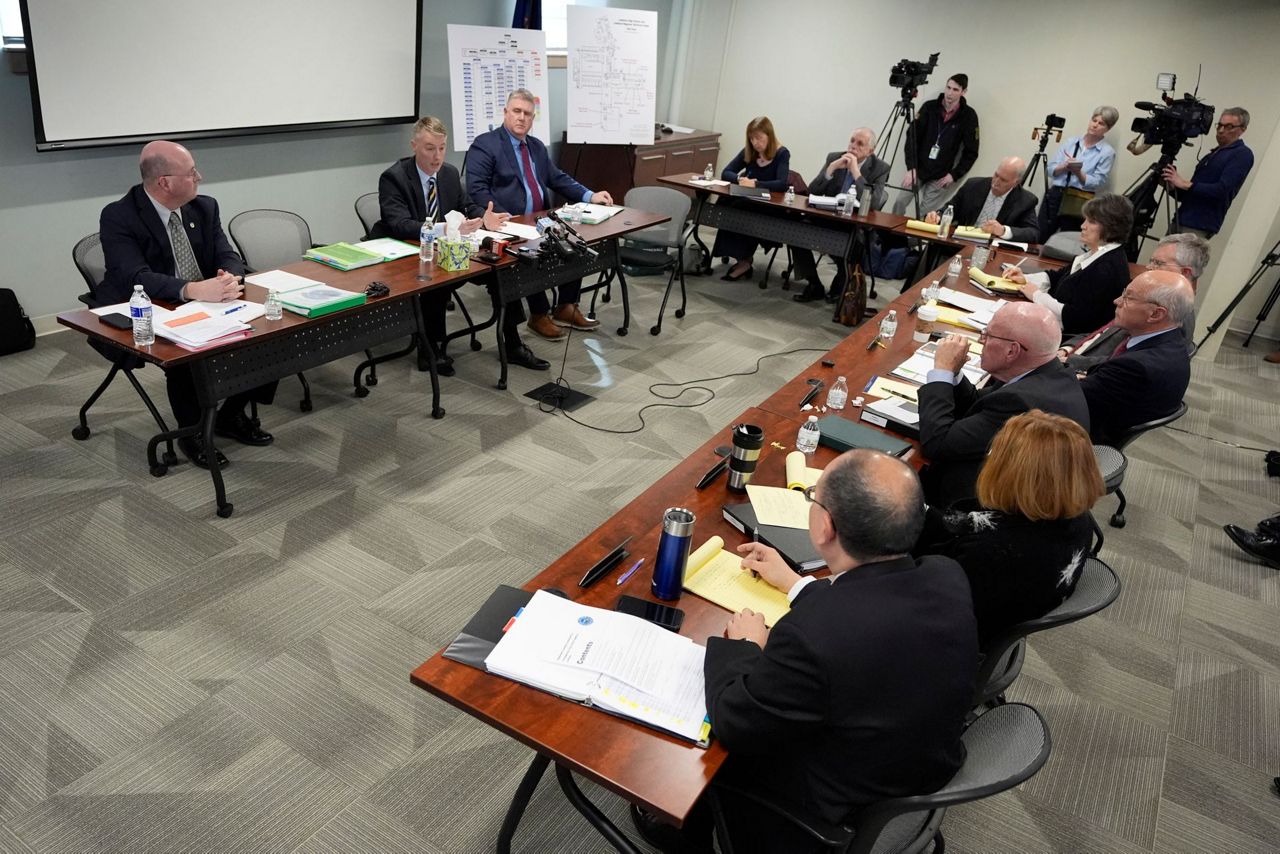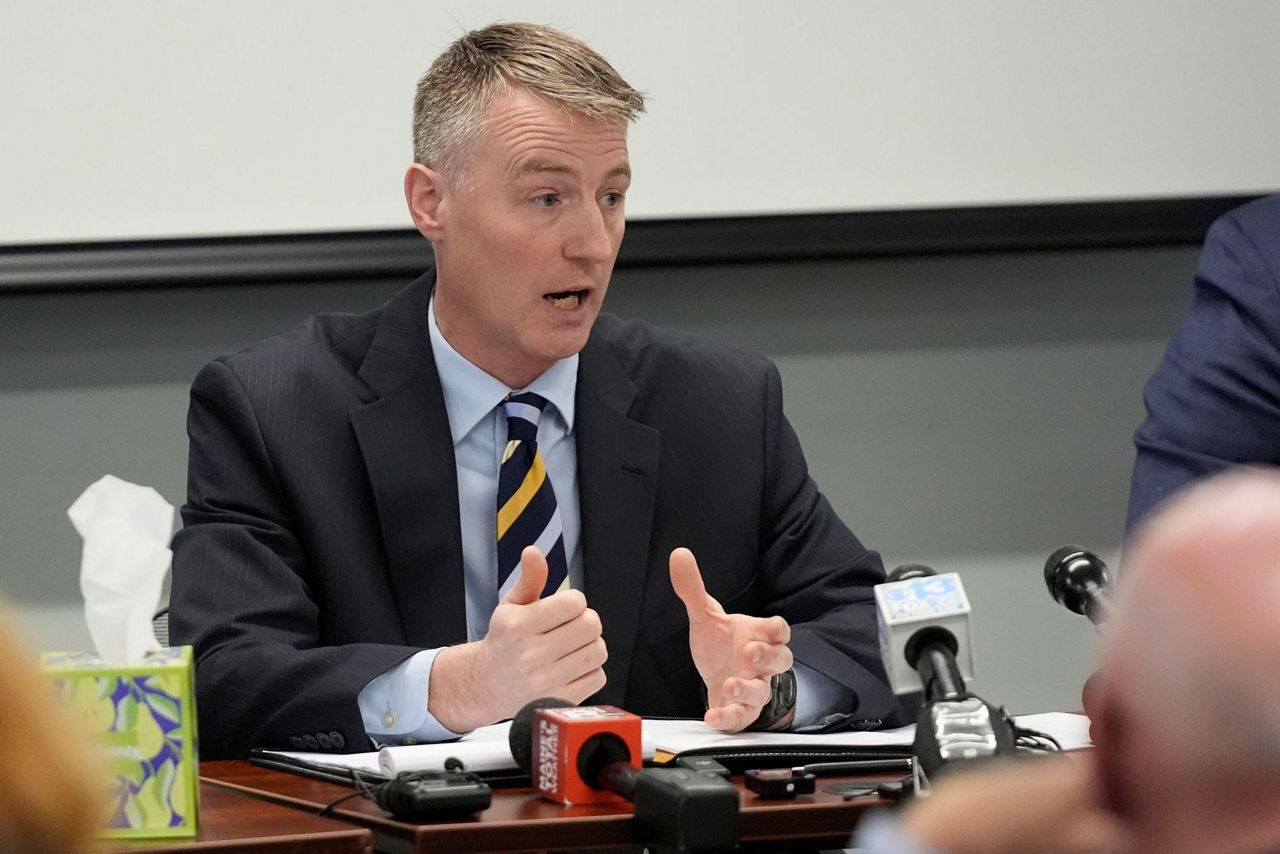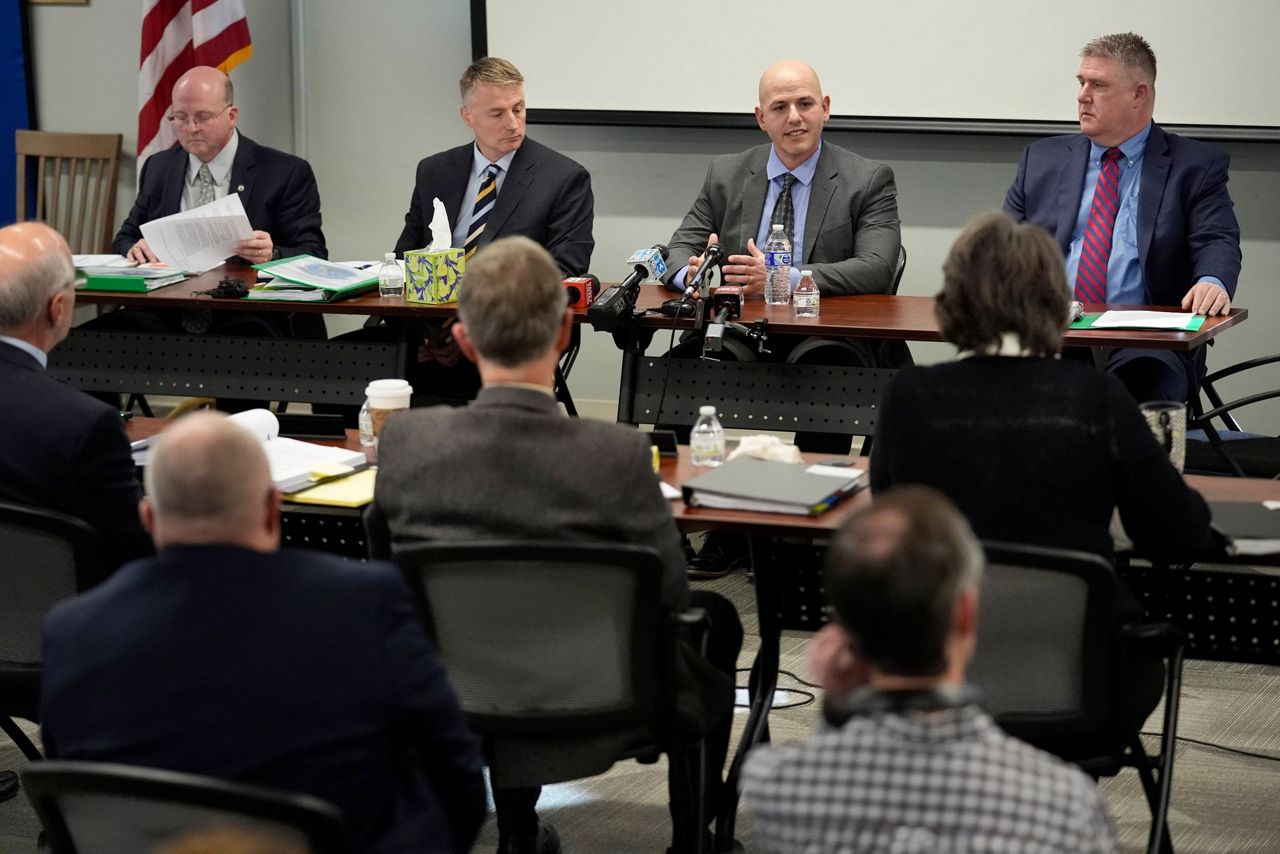AUGUSTA, Maine (AP) — Maine state police on Thursday defended their search last fall for a gunman who had just killed 18 people, saying they didn’t rush to search woods surrounding his abandoned car because they feared a late-night ambush.
The Oct. 25 shooting at a bowling alley and a bar was the deadliest in state history. But it took police two days to find the body of shooter Robert Card, who died by suicide, while tens of thousands of Maine residents were ordered to shelter in their homes.
Police have been criticized for not finding Card sooner, after they quickly identified him as the shooter and found his car, and twice searched a nearby recycling facility where he used to work. They ultimately discovered his body in the back of a tractor-trailer in the business' overflow parking lot during a third search.
State Police Chief Col. Bill Ross told an independent panel appointed by the governor that the shooting was “extremely challenging” because it involved two separate locations followed by an intense search. He said that in most other mass shootings, the suspect has died or been captured at the scene.
“The weight on our shoulders to find Robert Card was immense and became heavier as each minute passed,” Ross said.
Maj. Lucas Hare told a panel investigating the Lewiston shooting that he decided to delay a search of the woods around the car because they'd been told that Card, a former Army reservist, might have a thermal gun scope or night-vision capabilities.
“We would essentially be asking a patrol officer, with their canine, to go into the woods without the ability to see at night," to face off against a man with military training, said Hare, who heads the state police operations division.
He told officers to wait for a SWAT team. “I know that was not a popular decision,” he said.
Hare also described some of the confusion and tension during the search as hundreds of officers from dozens of different police agencies descended on the area and emergency calls flooded in.
There were other reasons police said they decided not to search the area with dog teams, citing a three-hour delay, exhaust from police vehicles diminishing the shooter's scent, and the lack of any heat signature found by an overhead helicopter. Adding to the confusion, Card's cellphone signal was traced to his home in Bowdoin, leaving police to wonder briefly if he might be there, police said.
Sgt. Greg Roy described how police responded to dozens of leads over the next two days, each of which turned cold. They staked out Card’s family home, searched a farm building and checked on a house where his ex-partner once lived. Police said they responded to hoax calls and chased down tips, 821 in all.
Democratic Gov. Janet Mills and Attorney General Aaron Frey assembled the commission to determine whether anything could have been done under existing law to prevent the tragedy, and whether changes are needed to prevent future mass shootings.
All told, police evidence technicians said Thursday that Card fired at least 54 shots — based on shell casings discovered at the two locations — using a .308-caliber rifle, which was later found in his abandoned vehicle.
Card spent just 45 seconds at the Just-In-Time Recreation bowling alley, where those killed included two men who rushed him when his gun jammed, and was inside Schemengees Bar & Grille for t 72 seconds, according to police.
His body was found at the recycling center in the last of some trailers they searched. A handgun was next to his body, an AR-15-style rifle underneath it, and more than 200 rounds of ammunition were nearby, police said.
The state’s chief medical examiner’s conclusion that Card “likely” died eight to 12 hours before the discovery of his body meant he remained alive during much of the search. State police still don’t know his movements after his vehicle was abandoned.
Both police and the Army were warned that Card was suffering from deteriorating mental health in the months before the shooting.
In May, relatives warned police that the 40-year-old Card was sinking into paranoia, and they expressed concern about his access to guns. In July, Card was hospitalized for two weeks after shoving a fellow reservist and locking himself in a motel room during training in upstate New York. In August, the Army barred him from handling weapons on duty and declared him nondeployable.
Then in September, a fellow reservist provided a stark warning, telling an Army superior that Card was going to “snap and do a mass shooting.”
Army officials later downplayed the warning, but it prompted local police to go to Card’s home in Bowdoin to check on him. Card didn’t come to the door and the deputy said he didn’t have legal authority under Maine’s yellow card law to knock on the door.
State Police Sgt. Thomas Pappas testified Thursday that he came upon the deputy in his car near Card’s home on Sept. 16. He said he agreed with the deputy’s decision to avoid going to the front door because of the potential danger. Pappas said he mentioned options including setting up a perimeter and calling in a tactical team but was told, “I wasn’t called there for my opinion.”
The deputy earlier told the commission that an Army official suggested letting the situation “simmer” rather than forcing a confrontation. The deputy also received assurances from Card’s family that they were removing his access to guns.
___
Perry reported from Meredith, New Hampshire.
Copyright 2024 The Associated Press. All rights reserved. This material may not be published, broadcast, rewritten or redistributed without permission.



